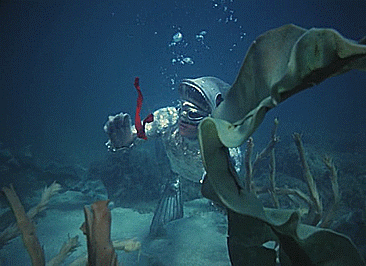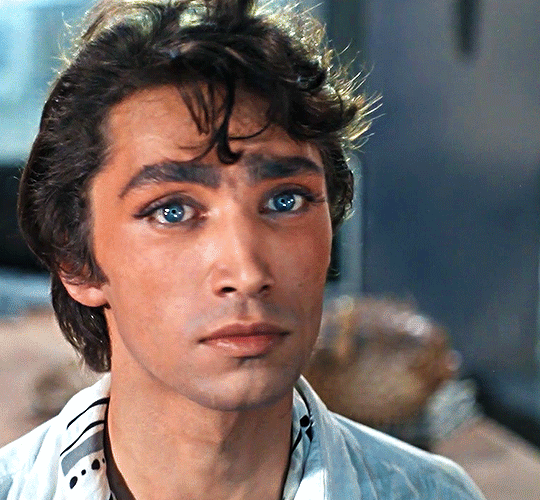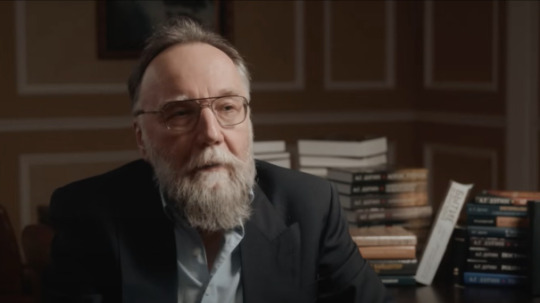#alexander beliaev
Explore tagged Tumblr posts
Text
The Amphibian Man - Book Review
Firstly, I would like to thank @anitaofsamothrace for introducing me to this wonderful film and book, and this post would not be possible without her help.
"Amphibian Man" (Человек-амфибия) is a captivating science fiction adventure novel penned by the esteemed Soviet Russian writer, Alexander Belyaev. This imaginative work was first introduced to the world in 1928, capturing the hearts and minds of readers with its unique blend of scientific exploration and fantastical storytelling.

Synopsis
"Amphibian Man" (original title Человек-амфибия), a captivating Russian science fiction novel written by Alexander Beliaev in 1928, weaves a tale of scientific ingenuity, human transformation, and societal reflection.
The narrative revolves around Salvator, an Argentinian doctor distinguished not only by his medical prowess but also by his daring approach to science. When faced with the critical condition of his son, Ichthyander, Salvator embarks on a life-saving transplant, forever altering the course of Ichthyander's existence.
While the experiment proves successful, granting Ichthyander a new lease on life, it comes at the cost of restricting his interactions with the world beyond the ocean's embrace. Subsequently, Ichthyander finds himself compelled to navigate the challenges of life submerged, raising poignant questions about identity and adaptation.
The plot takes an intriguing turn with the introduction of Pedro Surita, a local pearl gatherer who discovers Ichthyander's extraordinary diving abilities. Pedro's attempt to exploit the young man's superhuman skills adds an element of tension and moral complexity to the narrative.
Beyond the individual struggle of Ichthyander, "Amphibian Man" delves into broader socio-political themes. The story subtly weaves in socialist ideas, offering a commentary on the pursuit of equality and the improvement of living conditions for the world's impoverished populations. As the characters navigate their personal challenges, the novel invites readers to reflect on the interconnectedness of scientific advancement, human nature, and societal structures.
"Amphibian Man" stands as a timeless exploration of the human condition, seamlessly blending elements of science fiction, morality, and social critique in a narrative that continues to captivate readers across generations.

Writing Style
The writing style of "Amphibian Man" is characterized by its vivid and elaborate descriptions, transporting the reader into a world rich with imagery. While the level of detail might be perceived as excessive by some, it serves the purpose of allowing readers to immerse themselves in the environments depicted. The author, Alexander Beliaev, employs a skillful use of language to vividly portray not only the physical landscapes but also the nuanced expressions and actions of the characters.
Despite the descriptive nature of the prose, some readers may find that the pacing occasionally slows down, leading to moments of potential monotony. However, this deliberate choice in writing style aims to offer a comprehensive and immersive experience, allowing readers to envision the intricate details of the narrative. The tropical and mystical ambiance of the Argentine coast serves as an enchanting backdrop, enhancing the overall reading experience and adding a layer of atmospheric charm to the storytelling.
One notable strength of the novel lies in its ability to address enduring and relevant themes. The narrative touches on topics that remain pertinent in contemporary society, fostering a connection between the fictional world and the reader's own reality. The exploration of these themes adds depth to the storyline, elevating "Amphibian Man" beyond a mere tale of fantastical transformation.
The characters in the novel are portrayed with charisma, making them relatable and engaging for the reader. The storyline's magnetic pull leaves the reader eagerly anticipating each unfolding chapter, creating a desire to delve deeper into the narrative. This captivating quality contributes to the novel's status as a classic, as it manages to sustain the reader's interest throughout.
Without divulging spoilers, the story skillfully weaves a captivating narrative that elicits a range of emotions. While there are moments of humor that provide a welcome respite, the narrative also concludes with a poignant blend of melancholy and joy. This emotional resonance lingers with the reader, leaving a lasting impression and prompting reflection on the intricacies of the human experience.
In essence, "Amphibian Man" is not merely a book but a literary journey that combines descriptive prowess, enduring themes, charismatic characters, and emotional depth. It is a classic that transcends time, inviting readers to explore its pages and, as an added dimension, experience the tale on the cinematic screen. The novel's ability to evoke a spectrum of emotions ensures its place as a timeless and multidimensional work of literature.

Reviews about the movie
The cinematic adaptation of "Amphibian Man" has been praised for its visually stunning aesthetics and its ability to evoke genuine emotion. The film's cool aesthetic captures the attention of the audience, creating a visually engaging experience. However, despite its visual appeal and emotional resonance, some critics argue that the book delves into a broader spectrum of topics with greater depth.
The movie primarily focuses on social and interpersonal problems, as well as personal tragedies, offering a glimpse into the complexities of the human experience. While the film addresses these themes, some viewers feel that the book handles these aspects with a more nuanced and profound approach, exploring the intricacies of the narrative in a more comprehensive manner.
During its initial release, the film received mixed reviews from critics. The discrepancy between critical reception and public popularity can be attributed to the prevailing cinematic norms of the time. Critics, often rooted in traditional values, were less receptive to the film's departure from Soviet values in both character portrayal and storytelling. The clash between the old-school critics' expectations and the film's innovative approach contributed to a divide in critical opinions.
Despite the lukewarm reception from critics, the film gained immense popularity among audiences. Its success can be attributed to its ability to resonate with viewers on a more emotional and personal level. While the characters may not exude extreme charisma or flamboyance, they are portrayed as authentic individuals with a balance of virtues and flaws. This realism in character portrayal allows audiences to connect with the story on a more human level.
Critics, however, noted that the characters in the film appeared shallower in comparison to their literary counterparts. The film's emphasis on the action genre received mixed reviews, with some feeling that it lacked the depth present in the book. This divergence in critical assessments underscores the subjective nature of artistic interpretation.
Despite the criticisms, the movie has stood the test of time and is now considered a classic. It holds a special place in the hearts of those who watched it, with fond memories lingering among audiences. The enduring popularity of the film, in contrast to its initial critical reception, highlights the dynamic relationship between cinematic innovation, audience reception, and the evolving standards of storytelling. "Amphibian Man" remains a cinematic gem, cherished by its audience for its unique blend of visual appeal, emotional depth, and its status as a classic in the realm of film adaptations.

Curiosities about the movie
"Amphibian Man" has garnered international recognition, with acclaimed Hollywood filmmaker Quentin Tarantino expressing it as his favorite Russian movie. This endorsement from a prominent figure in the film industry underscores the global appeal and impact of the Russian cinematic gem.
Interestingly, the movie has been at the center of controversy regarding its influence on the 2017 Hollywood production "The Shape of Water." Accusations of plagiarism have arisen due to the striking similarities between the two films. Both share a common narrative thread, featuring a protagonist with an amphibious nature, a Soviet connection, and a setting in the 1960s. The parallels in plot and thematic elements have sparked debates among film enthusiasts about potential inspirations or influences.
While such accusations may ignite discussions about artistic originality and creative inspiration, they also highlight the enduring relevance of "Amphibian Man" as a source of inspiration for contemporary filmmakers. The film's impact has transcended geographical boundaries, leaving an indelible mark on the cinematic landscape and influencing works beyond its cultural origins.
As debates continue about the similarities between "Amphibian Man" and "The Shape of Water," it serves as a testament to the enduring legacy of the Russian classic and its capacity to resonate with filmmakers across different cultures and generations. The movie's cultural significance and its ability to spark discussions in contemporary cinema contribute to its status as a cinematic treasure with a lasting impact.

Personal opinion
It was a truly pleasant experience delving into the pages of this book and immersing myself in the world of this film. As my initial encounters with Russian/Soviet literature and cinema, they ignited a curiosity that compels me to explore more works of a similar nature.
Thank you for taking the time to explore my thoughts on “The Amphibian Man” ~
#человек-амфибия#the amphibian man#book review#russian literature#soviet literature#classic literature#books#booklr#russian cinema#soviet cinema#movie review#book recommendations
4 notes
·
View notes
Text
Todas las tormentas que has enfrentado

Por Andrei Kosterin
Traducción de Juan Gabriel Caro Rivera
Reseña del documental Alexander Dugin: la primavera rusa, el eurasianismo y la geopolítica.
El documental emitido por la plataforma mediática Konservator (Conservador), propuesto por Anton Krasovski y dirigida por Evgeni Balakin, es un recuento de las ideas filosóficas de Alexander Dugin a partir de su vida. El simple hecho de recontar la “biografía” de este personaje permite a sus creadores entrevistar a su protagonista, así como a sus asociados más cercanos – Sergei Zhigalkin, Natalia Melentieva, Alexei Beliaev-Gintov, Eduard Boyakov y Alain de Benoit –, con tal de mostrar, de forma convincente, el nacimiento, crecimiento y maduración de las ideas filosóficas de Alexander Dugin a través de toda su vida. De ese modo es que una gama aparentemente inconexa de pensamiento adquiera el cuerpo de una Idea rica, multiforme y compleja que florece en su totalidad. Mucho más a menudo de lo que nos gustaría aceptar, sucede que una idea se extravía con la suave brisa del viento y termina en lugares inesperados que avergüenzan a los filósofos que las pensaron. Muy a menudo sucede que la idea de un filosofo madura en medio de un largo e inmenso silencio que llena su estudio como si se tratara de una flor delicada que crece en las condiciones más favorables de un invernadero: esto se aplica a las ideas de Kant, Hegel o Marx. Sin embargo, pocas veces sucede que una idea nace y crece en contraposición a la forma de pensar de su tiempo. Es como si esta idea no buscara la aprobación, sino la censura y la condena, probando su fuerza y endureciéndose en medio de esta batalla contra un enemigo poderoso y formidable que la acecha, más o menos como si Lemontov navegara en medio de la tempestad, huracán o tormenta perfecta. ¿Será capaz de llegar hasta el centro de la tormenta, ese lugar donde se encuentra la Verdad?
Esa tranquila vorágine, expresión máxima del vacío ideológico que reinaba a finales de la Unión Soviética, horrorizó al joven Alexander Dugin que en su momento optó por acercarse a la disidencia metafísica expresada por el “círculo Yuzhinki”, el más importante centro del tradicionalismo ruso. Fue en este espacio paralelo a la realidad soviética – no anti-soviético, pues transcurría en una dimensión totalmente diferente – que Dugin vio como a partir del 19 de agosto de 1991 el liberalismo llegó al poder. Fue así como descubrió a un nuevo enemigo, el liberalismo, y sus antiguos adversarios, los comunistas, se convirtieron en sus aliados. Observando que Rusia y todo lo ruso se encontraban bajo ataque, el antiguo filosofo disidente cambio de Gestalt y comenzó a rescatar la antigua cultura y sociedad soviética que se había hundido, considerándola como “propia”. Fue así como Dugin terminó del lado de los “roji-pardos”, acercándose a los comunistas y creando junto con Eduard Limonov e Igor Letov el Partido Nacional-Bolchevique. El estudio de la geopolítica llevó a Dugin ha darse cuenta de que el enemigo más grande y jurado de Rusia era el atlantismo. No obstante, a finales de 1990 Alexander Guélievich llega a la conclusión de que las luchas políticas internas en Rusia son irrelevantes, abandona el Partido Nacional Bolchevique y desde entonces comienza a atacar únicamente al atlantismo como gran enemigo de Rusia en un momento donde pocos hablaban de ello. Estos ataques no fueron como “un perro ladrando a un elefante” (algo muy común entre los blogueros). Los ataques de Dugin llamaron tanto la atención en el extranjero que fue convocada a la Casa Blanca por los anglosajones, donde se reunió con los congresistas y “cardenales grises” de la geopolítica anglosajona como lo eran Zbigniew Brzezinski y Francis Fukuyama. Fue a partir de aquí que Dugin se convirtió en un “enemigo jurado” y recibió el título del “filósofo más peligroso del mundo”. Cabe decir que muchos se sintieron decepcionados por el “servilismo” de Dugin al gobierno de Putin a partir del 2000, pero hasta la fecha ha mantenido el mismo valor y coherencia que en su juventud: “Estoy con Putin en la medida en que él esté a favor de Rusia”, sosteniendo que todos los que están en contra de un enemigo común son nuestros aliados.
Fue a partir de este momento que el eurasianismo se convirtió en un movimiento sociopolítico que influenció no solo a Rusia sino al extranjero, un movimiento amplio gracias a su misma inclusividad. Las ideas de Dugin terminaron por formalizarse y convertirse en una ideología coherente, la Cuarta Teoría Política, una síntesis entre el eurasianismo clásico, la geopolítica y el tradicionalismo. La CTP se caracteriza por la introducción de la verticalidad – Dios – dentro de la dimensión política y en la actualidad ha quedado claro que el verdadero enemigo de esta teoría es Satanás mismo. Durante la “Primavera Rusa” del 2014 Dugin se convirtió en uno de los autores y actores más importantes del despertar popular ruso, cuyo espíritu llevó al retorno de Crimea. Este despertar asustó a la élite rusa que terminó por destruir tal proyecto y expulsó a Dugin de la Universidad Estatal de Moscú. A pesar de esto, Dugin se mantuvo fiel a sus ideas y decidió oponerse en el plano espiritual, dejando de lado los reproches de quienes lo acusaban de servilismo. Una vez más el Nuevo Orden Mundial esta dando forma a la historia rusa tal y como lo había predicho Dugin. Ahora todos comprenden que Rusia no solo esta en guerra contra Ucrania, ni siquiera contra Occidente, sino que se trata de la “Guerra de los Últimos Tiempos”, ya “que la Virgen ha abandonado Occidente” (verso de un poema de Dugin compuesto por el incendio de la catedral de Notre-Dame). Y nuevamente es este filósofo quien esta a la Vanguardia de la lucha, inspirando la movilización entre sus compatriotas y el resto de la sociedad. No se trata de un filosofar en abstracto, sino con un martillo y armas, hasta el punto de que un padre ha perdido a su hija, valiente y feroz guerrera… Una idea solo tiene verdadero valor si existe gente capaz de dar su vida por ella. La idea de la Santa Rusia, del Katechon, le ha arrebatado a este filósofo una de las cosas más queridas por él: su hija Daria Dugina. Pero esta idea se ha hecho más majestuosa, santa y noble gracia a ella. “Muerte, ¿Dónde está tú aguijón?”
***
Este documental, aparecido en la plataforma Konservator, trata sobre la formación y nacimiento de una Idea, Idea que hoy sostiene firmemente Alexander Dugin debido a su defensa de Dios, Rusia y la Victoria. Es un hecho que “nadie es profeta en su tierra”.
3 notes
·
View notes
Text

Amphibian Man by Alexander Beliaev
#amphibian man#aesthetic#ichthyander#ikhtiandr#sea devil#fish man#alexander beliaev#человек-амфибия#ихтиандр#морской дьявол#александр беляев
8 notes
·
View notes
Text

I've read "Amphibian Man" by Alexander Beliaev and MY GOD it's awesome, mostly because of Ichthyander who is my new blorbo. Awesome boi nice personality.
(If you know how to organise "[book title] Weekly", I would be ill-mannered enough to ask for advice. I want more people to read this book🥺)
#my art#the amphibian man#amphibian man#fan art#человек амфибия#человек-амфибия#literature#book club#science fiction
3 notes
·
View notes
Photo










Amphibian Man Человек-амфибия is a 1962 Soviet science fiction romance film starring Vladimir Korenev and Anastasiya Vertinskaya, and directed by Vladimir Chebotaryov and Gennadi Kazansky. It is an almost fable-like story based upon the eponymous novel by Alexander Beliaev. It focuses on a youth named Ichthyander (from Greek: fish+man) who was surgically altered to survive under the sea. Unlike traditional science fiction movies of the time the film focuses much more on the concept of love won and lost. [x]
#amphibian man#soviet cinema#vladimir korenev#anastasiya vertinskaya#gennadi kazansky#vladimir chebotaryov#chelovek-amfibiya#человек амфибия#**#soviet*#mgif*#chelovek*
1K notes
·
View notes
Text
John Wallin
Alexandre Chaudet
Dirty Robot
Basha Beliaev
Alexandra Dvornikova
Team Couscous
Sarah Kipin
JiHun Lee
Eve Venture
Serge Birault
Jakub Rebelka
Philipp Kruse
Choong Yeol Lee
Alexander Beardin
Sam Bosma
I am a Ventrue.
Women with swords and sensible armor John Wallin Alexandre Chaudet Dirty Robot Basha Beliaev Alexandra Dvornikova Team Couscous Sarah Kipin JiHun Lee Eve Venture Serge Birault Jakub Rebelka Philipp Kruse Choong Yeol Lee Alexander Beardin Sam Bosma
0 notes
Text
Day 3, noon results
Men: Romania vs Russia 4-0
Vasile Hapun bt Sergey Beliaev 12-10, 11-5, 11-3
Teodor Ristea vs Vladimir Osipov 5-11, 9-11, unfinished
Ilie Petre Bogdan vs Vyacheslav Perfiyev 11-9, 6-11, 11-4, unfinished
Horia Naumescu bt Alexander Andreev 12-10, 8-11, 11-2, 11-6



0 notes
Text
《陶威爾教授的頭顱》
上禮拜在以前辦研討會認識的教授FB上看到這則新聞

"Russian Man Will Become Subject Of First Human Head Transplant Ever Performed"
*有人argue到底是頭的擁有者是捐贈者還是身體的擁有者是捐贈者
就想起以前看過由俄國科幻小說作家別利亞耶夫 Alexander Beliaev 所寫的"陶威爾教授的頭顱" 《Professor Dowell's Head》

別小看這是1925年寫的小說,裡面所提到移植手術困難面臨的困難,跟上面英文報導所敘述的很類似呢
短短200多頁的小說探討了科技、生命、醫學倫理、哲學等許多的議題:把死掉之人的頭顱復活,算不算是真的復活? 擁有他人身體的頭顱會發生怎樣的排斥/融合反應? 身為研究助理的女主角面對自己良心的譴責,要如何才能真正的幫助這那些復活的頭顱,就要親自閱讀才會知道���!
1 note
·
View note
Photo









Alienizers from Tokusō Sentai Dekaranger in order of their appearance in series. Sixth pack. Return to previous ones. © 特捜戦隊デカレンジャー Ep. 35-43
10 notes
·
View notes
Photo

Exotique 5: The World's Most Beautiful CG Characters
22 notes
·
View notes
Photo

The Art of Darksiders
16 notes
·
View notes